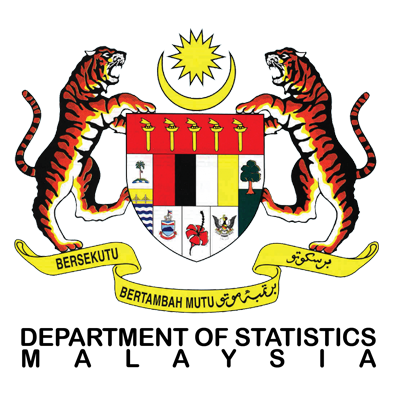
Programme: 9th Meeting of Regional Steering Group for Civil Registration and Vital Statistics in Asia and the Pacific

Date: 10 - 12 May 2023

Venue: Bangkok, Thailand

Organiser: UNESCAP

DOSM Representative: Ms. Nazaria Baharudin, Deputy Chief Statistician & Co-chair RSG CRVS
As Co-chair of the RSG CRVS, Malaysia has chaired a few sessions of the meeting agenda during second and third day and shared Malaysia’s perspective on enhancing the enhancement of CRVS-related matters under the session 5 and 14. Through the three days of the meeting, the committee finalised the important recommendation as follows:

Session 2: Implementing Inequality Assessments (IA) and Strengthening Demographic Analysis Capacity

Outcome: To ensure no one is left behind in terms of birth and death registration; Reasons may be attributed to geography, disabilities, economic status, social reasons, illegal adoptions etc; Challenges include traditional registration, need to move to digitalisation, lack of understanding/need to register, accessibility to registration facilities office or online application; Analysis using among others population Census data, other household surveys i.e MICS as well as other available microdata, special study; Requirements include being able to assess both quantitative and qualitative IA, sharing of microdata and skills for analysis facilities; Policy Implications include policy briefs, awareness programmes, standard notification, financial incentives, further research.

Session 5: CRVS Resilience

Outcome: Encompass three main presentations that cover lessons from COVID-19 about the implications of movement control order since registration of birth and death is not considered essential service; the impact of climate change on CRVS where the need for ID upon disaster; and how to create resilient CRVS for managing resources; improving systems; improving delivery.

Session 7 Panel: Strengths and Weaknesses of CRVS Decade

Outcome: The strengths highlighted include CRVS champion, addressing statelessness, and birth registration right of the child; The Weaknesses include marginalised groups excluded; 18% under five not registered, data interoperability; administrative data to replace survey in Pacific Island; and Recommendation - LNOB, continued work, strategies and innovation, resilient CRVS, digitalisation, creating indicators for measurement, advocacy, breaking silos among agencies, good governance, linking to SDG to obtain political commitment, moving to marriage.

Session 10: World Cafe - CRVS Decade Beyond 2024

Outcome: Encompass five topics for discussion, which include achieving national targets; universal registration, aligning to 2030 or beyond; maintaining or introducing new focus areas and challenges of extending or establishing a new decade; Improved delivery. A majority vote for a decade beyond 2024 realigns to SDG 2030.

Session 15 Experience Sharing by countries on completing the midterm questionnaire

Outcome: Bangladesh- Causes of death- Challenges in efficiency, lack of expertise, need training for verbal autopsy, in transition to the new system. Malaysia has undertaken many activities to support the CVRS Decade, including a new registration Act for Peninsular Malaysia, setting up a governance steering committee, technical committee, technical working groups and Inter-Agency Group, improved registration services, interoperability data sharing for services provided - verifying id etc. Kiribati- challenges lack of awareness of the importance of registering and no link records, validation with technical assistance, SPC & UNICEF; Fiji has created people's hub for civil registration as well as entity hub, have regular meetings, to review archaic Registration Act.

Session 16: Assessing the themes for the review of the Asia Pacific CRVS Decade 2015-2024

Outcome: The link to a national ID, India, Malaysia and Indonesia, among others, have a direct link. For Marriage Registration: some countries register no under one roof, attempt to digitise and centralise marriage records, lack incentive to register and need data i.e. child marriage and how the CRVS system validates. For Resilience: needs modernisation but not enough, ensuring historical data is not lost, centralised system, 'trust', require capacity building, strong system, access to data. For Universality: The need for legislation for mandatory registration, enhanced approach i.e. digital, interoperability of data, an initiative on target, link birth to id, cooperation at the community level, engaging and cooperation with stakeholders, enforcement of legislation at the national level and collective work at the regional level.

Keywords ending day 1 - among others - inclusive, challenging, partnership, digitalisation, IA, transformation, estimates

Keywords ending day 2 - among others - leaving no one behind, (LNOB), political will, governance, beyond 2024

Keywords ending day 3 - universality, linking registration to id, modernisation, digitisation

Statistics is the Essence of Life


